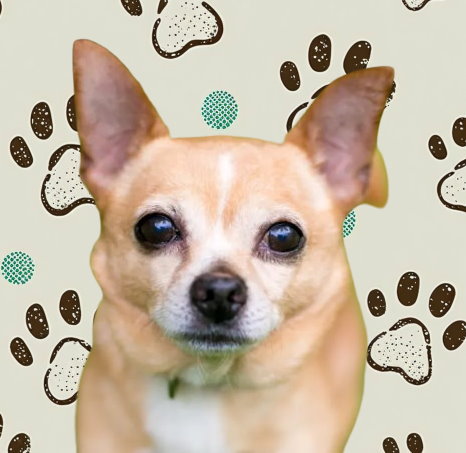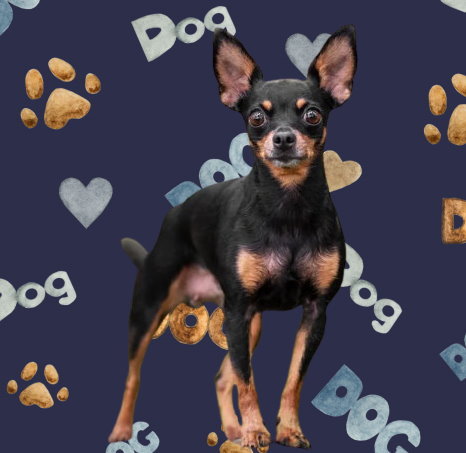Welcome to Dog Training Newbies !
Welcome to Dog Training Newbies !

Chihuahuas, with their lively personalities and small stature, often have big reactions to loud or unexpected noises. Noise sensitivity is a common issue in this breed, manifesting as anxiety or fear when confronted with sounds like thunderstorms, fireworks, or even household noises. Understanding the causes of noise sensitivity and employing effective management and training strategies can help your Chihuahua feel more secure and relaxed.
Noise sensitivity in Chihuahuas can be attributed to several factors. Their heightened sense of hearing makes them more susceptible to loud sounds, which can be overwhelming and trigger stress responses. Additionally, a lack of early socialization or negative past experiences with loud noises can exacerbate these reactions. Recognizing the signs of noise sensitivity, such as trembling, hiding, barking, or attempting to escape, is the first step in addressing the issue.
Creating a safe and comforting environment is crucial for managing noise sensitivity. Designate a quiet area in your home where your Chihuahua can retreat during noisy events. This safe space should include their bed, favorite toys, and possibly a piece of your clothing for comfort. Soundproofing the area with heavy curtains or blankets can help muffle external noises, providing an added layer of security.
Desensitization and counter-conditioning are effective training techniques for reducing noise sensitivity. Desensitization involves gradually exposing your Chihuahua to the noise at a lower volume, slowly increasing it over time as they become more accustomed. This process helps your dog learn that the sound poses no threat. Pairing the exposure with positive experiences, such as treats or playtime, can create a positive association, reducing anxiety and fear.
Incorporating sound therapy into your routine can also be beneficial. Playing calming music or white noise can help drown out disruptive sounds and promote relaxation. Several playlists specifically designed for dogs are available online, featuring soothing music that can help ease anxiety.
Training your Chihuahua to focus on you during noisy situations can be invaluable. Teaching commands like "look at me" or "focus" redirects their attention and provides a sense of security. Practice these commands regularly in a calm environment before gradually introducing them during moments of noise exposure. Consistent training builds trust and helps your Chihuahua feel more confident in your presence.


Exercise and mental stimulation are essential components of managing noise sensitivity. Regular physical activity helps expend excess energy, reducing overall anxiety levels. Engaging toys and puzzles can keep your Chihuahua occupied and distracted during noisy events, providing mental enrichment and reducing stress.
In some cases, consulting a professional dog trainer or behaviorist may be necessary. They can offer personalized strategies and training plans tailored to your Chihuahua’s needs. A veterinarian might also recommend anti-anxiety medications or natural supplements if behavioral interventions alone are insufficient.
Maintaining a calm demeanor during noisy events is vital. Dogs are highly attuned to their owners' emotions, and your anxiety can amplify their stress. Modeling calm behavior and offering reassurance without overreacting to the noise can help your Chihuahua feel more secure.
Socialization plays a significant role in reducing noise sensitivity. Exposing your Chihuahua to various environments, people, and other animals can build confidence and adaptability. Gradual exposure to different sounds during socialization can help desensitize your dog and reduce fear responses.
Understanding and addressing specific triggers is essential in managing noise sensitivity. Identifying the sounds that provoke anxiety allows you to implement targeted strategies. Keep a journal of your Chihuahua's reactions to different noises to help pinpoint problem areas and track progress.
Patience and consistency are key in managing noise sensitivity. Progress may be gradual, and setbacks can occur, but maintaining a positive and supportive approach will yield the best results. Building a strong bond with your Chihuahua through positive experiences and training enhances their trust and confidence, helping to alleviate noise-related anxiety.
In conclusion, noise sensitivity in Chihuahuas is a manageable condition with the right approach. By creating a safe environment, employing desensitization techniques, and providing mental and physical stimulation, you can help your Chihuahua feel more secure and at ease. With patience and dedication, you can ensure a happier, more relaxed life for your beloved companion.